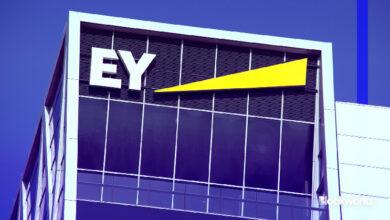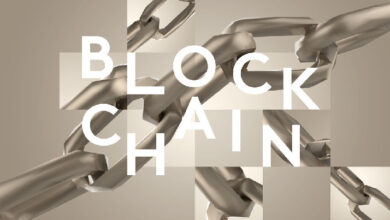The tokenization of real assets?

Blockchain
Switzerland is unanimously considered a pioneering nation in the cryptocurrency sector.
As early as 2013, the first startups intended to focus their business on crypto were incorporated in Switzerland.
At that time, there was no legislation to ensure working in full legal certainty, as digital currencies were still totally unknown, not only to the masses, but also to insiders.
The federal government immediately positioned itself as an extremely innovative location and took a business-friendly approach to Crypto startups eager to establish themselves in the Alpine nation.
The Swiss authorities issued the first banking licenses for crypto-banks back in 2015.
This allowed Blockchain and Fintech startups to continue to establish themselves in Switzerland, leading to the birth of the famous “Crypto Valley.”
The city and canton of Zug at the heart of the unparalleled “Crypto Valley” since 2016
The city of Zug has been pioneering the Blockchain and Crypto scene and is still attracting new companies to the sector, a circumstance that allows the Swiss square to be among the top three jurisdictions in the world in terms of innovation and security in the crypto universe.
For example, think of the evolved cross-border payment system, or the security of the custody of crypto-assets at Swiss crypto-banks.
Think also of the many companies developing applications based on blockchain and the tokenization of real assets.
In 2016, the Municipality of Zug decided to accept Bitcoin as a means of payment for some services.
Since 2020, the cantonal tax authority has also allowed people to pay their tax bills in Bitcoin and Ethereum up to a maximum amount of 100,000 Swiss francs.
Two years ago, the “Blockchain Law” as well as “distributed ledger-based securities”
As of 1 February 2021, Switzerland’s “Blockchain Law” initially incorporated elements of the Distributed Ledger Technology (DLT) regulations, allowing the introduction of a new category known as “distributed ledger-based assets.”
Distributed ledger-based assets as a new form of collateral were included in the Swiss Bond Code.
Article 973d defines distributed ledger-based assets as a right uploaded onto a “ledger,” which can only be enforced through the ledger itself.
Hence, according to the innovative Article 973d CO, if allowed by a company’s bylaws, assets such as shares can be issued as ledger-based assets and “uploaded” onto a blockchain.
Instead of holding the securities in paper or electronic form, there is thus the possibility of uploading them in digital form to a Blockchain, an operation that has several advantages.
Thus, stock tokens contain exactly the same rights and obligations as “traditional” stocks.
In the same way as a company’s stocks and bonds, ledger-based assets can be representative of physical assets in the real economy.
Lengthy series of fiscal, visibility and internationalization benefits through stock tokens
Asset tokenization is a common practice in the Swiss financial market.
It is legally guaranteed by existing legislation through Switzerland’s Federal Financial Market Infrastructure Act (FinfraG).
Traders can contractually link assets (bonds or stocks) to a token, so that the assets and the token cannot be transferred independently.
Through the tokenization of shares, companies and investors can achieve these benefits: creating liquidity for their shares; creating interest/visibility in the market, generating potential appreciation of the shares themselves; making an investment accessible to the general public that previously was not, boosting sectors of the economy that previously remained little known internationally; and enjoying tax advantages, depending on the jurisdiction of residence, related to token ownership.
Investments in classic cars, wine collections, art and watches more democratic and more lucrative
The same tokenization operation can be conducted with other types of real world assets, such as vintage cars, wine collections, various artworks and watches.
What do these assets have in common? They are illiquid and inaccessible to the general public.
How can the average investor invest in a Picasso, a fine nectar, a Patek Philippe, a private jet?
Through the operation of asset tokenization, it is possible to digitally divide the asset into many small fractions of equal value.
Hence, even the small investor can access the market.
The creation of liquidity underlying tokenization democratizes luxury markets, areas that very rarely generate capital losses.
Hence, the small investor receives tokens representing that asset in his or her wallet and can hold or sell them on a specific Crypto market in an onshore or offshore jurisdiction of his or her choice, analogous to owning shares and selling them on a trading platform.
On the seller’s side, the chances of selling an illiquid asset increase by quite a bit compared to having to find a unique buyer in the luxury market.
An operation that requires more time, more resources and generates probably less revenue than tokenization.
Lastly, we can evaluate an interesting tax aspect, which depends solely on the tax residence of the investor.
In fact, holding tokens offshore may not be taxed, neither on the substance nor on any capital gain…
DIDA
Tokenization: the text of Article 973d of the Swiss Confederation’s Code of Obligations (in English)
Tokenization: the city of Zug pioneered the Blockchain and Crypto scene in Switzerland and is still attracting new companies to the sector
Tokenization: in current Swiss law, share tokens contain exactly the same rights and obligations as “traditional” shares
Tokenization: a cryptocurrency is a digital currency that, unlike traditional currencies, does not exist in physical form and is not controlled or managed by any central authority
Tokenization: blockchain is a data structure that consists of growing lists of registers, called “blocks” and distributed, securely linked together using cryptography
Tokenization: tokenization of assets represents an alternative and innovative way to achieve fractional ownership of an asset





